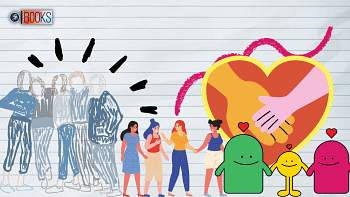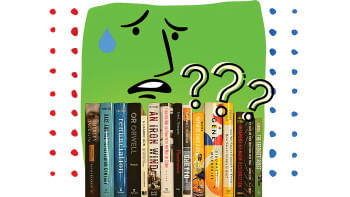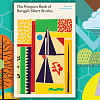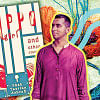Using humour and Fredrik Backman’s novels to breeze through life

There's something about viewing the world through a lens of humour that can make everything a little more bearable—if not, maybe even, pleasant.
As someone who can get rather invested in the books I read or the movies I watch, I have stayed well away from books that have the capacity to make me cry (because why would I want to put myself through that, I cry enough as it is). As most of us do, I have treated books as a form of escape, and hence only tend to gravitate towards stories that are set in worlds wholly different from the real one. Ones that can bear no resemblance to the issues we face in our daily lives. I'd rather read about Kaz Brekker from Six of Crows (Henry Holt and Co., 2015) than Jesse Oliver Aarons from Bridge to Terabithia (HarperCollins, 1977). It's so far removed from reality that it helps me momentarily escape a world already so full of grief and pain.
For as long as I can remember, I have feared this very grief. And it was the last thing I wanted to read about. Little did I know, all I was missing was someone with a sense of humour to ease me through all the unpleasantness that comes with being human. And in doing so, help me overcome my fear.
Fredrik Backman, a Swedish writer, most well known for A Man Called Ove (Atria Books, 2014), Anxious People (Atria Books, 2019), My Grandmother Asked Me To Tell You She's Sorry (Atria Books, 2015), and countless other novels, offers a perspective that I didn't know I needed.
Charlie Chaplin once said, "Life is a tragedy when seen in close-up, but a comedy in long-shot." I find that Fredrik Backman's novels teach us to find a healthy middle. As I very quickly move through each of his books, it's safe to say I have fallen irrevocably in love with his writing and how he views the world. While there is much to cover when it comes to his novels, in this article, I want to talk about how Backman approaches anxiety and grief, respectively done through his novels, Anxious People and A Man Called Ove.
Backman, in his style of writing and the characters he builds, tends to approach all the complexities of humanity with a touch of distance, while still managing to maintain intimacy—a contradictory combination that I think is incredibly challenging to achieve. We are both close, yet just the right amount of distant from all the feelings and thoughts that shoot through the minds of the characters on any given day. His writing feels like a way of thinking that we can all benefit from practising. I felt this very strongly when reading A Man Called Ove. The novel revolves around (you guessed it) a man called Ove and his immutable determination at wanting to commit suicide, but his continually failed attempts to do so.
Starting out, you will have every reason to hate him. He will irk you in all the ways that the old man who lives down the street annoys you—the kind who waves a shaking cane at you and goes on and on about, "Back in my day…" But with every page, my irritation with Ove disappeared a little. Every chapter peeled back yet another layer to him, making us realise that Ove is so much more than the bitter old man he had initially seemed to be. He is a romantic, kind, and naively straightforward man. And the more I read, the more I found that I had sympathy and love for Ove, because we have a little bit of Ove in all of us.
Through a mix of past and present, Backman walks us through the heart wrenching depth with which Ove actually feels, despite the constipated way in which he seems to process and display his feelings. His story is a blend of painfully beautiful romance and a hilarious comical simplicity with which he looks at life and everyone in it.
In this book, Ove deals with grief that, on any other occasion, would have you reaching for tissues and leave you hurting for the rest of the day. But Backman writes in a way that somehow, through the tears that pool in your eyes, the book still has you smiling. It's a superpower, I tell you, to be able to walk through life's hardest moments, and still find something to smile or laugh about, to find the comical bits hidden between the folds of pain.
Similarly, in Anxious People, Backman writes characters, all of whom, to me, seemed to be representing a different form of anxiety. He is able to find the humour, even in the debilitatingly unfunny nature of anxiousness. The book revolves around a set of intensely different characters brought together by a hostage situation caused by a down-on-their-luck bank robber, who is losing control of the situation with every passing second. And as we jump from the life of one character to the other, we slowly begin to find out what exactly makes them the way they are. We end up playing a game of "What anxious habits does this character embody?" The characters stretch across generations, showing not only the various forms of anxiety in general but the ways in which they present themselves at different stages of life.
But most importantly, I felt that despite the surface of each character being just another version of an anxious feeling, inside, they were all amazing people worth getting to know. Their anxiety did not define them, despite it seeming that way sometimes. At the heart of each character, we find the source of their anxiety and all the beauty that exists under the layers of it that we often lose ourselves to. The characters go from dealing with incredibly painful feelings of inadequacy to tiny, obsessive, and rather funny habits and phases that anxious people often descend into. We experience the discomfort of it all through stifled giggles.
Backman writes characters with an optimism that I think a lot of us could use, and he breaks down big emotions into digestible bits. I feel he teaches us how to walk through life feeling just a tad lighter, and I urge anyone who hasn't read his books, to give it a shot and get ready to smile your way through all the hardships of life!
Syeda Erum Noor is devoted to learning about the craft of writing and is an avid reader who can talk endlessly about the magic of books. Reach her on Instagram at @syedaerumnoorwrites.

 For all latest news, follow The Daily Star's Google News channel.
For all latest news, follow The Daily Star's Google News channel. 










Comments